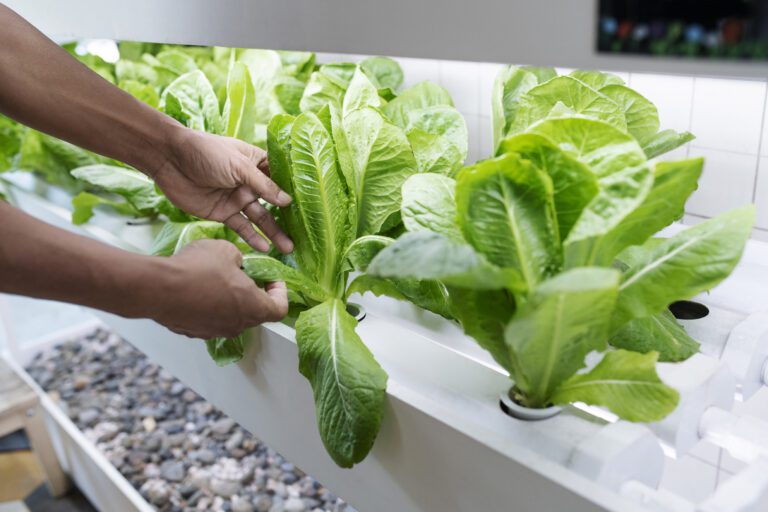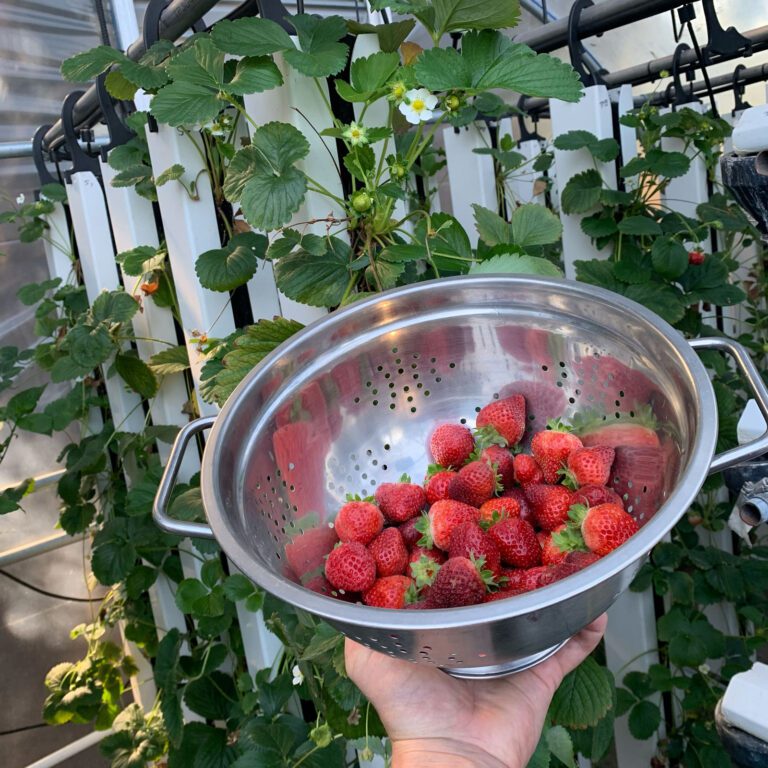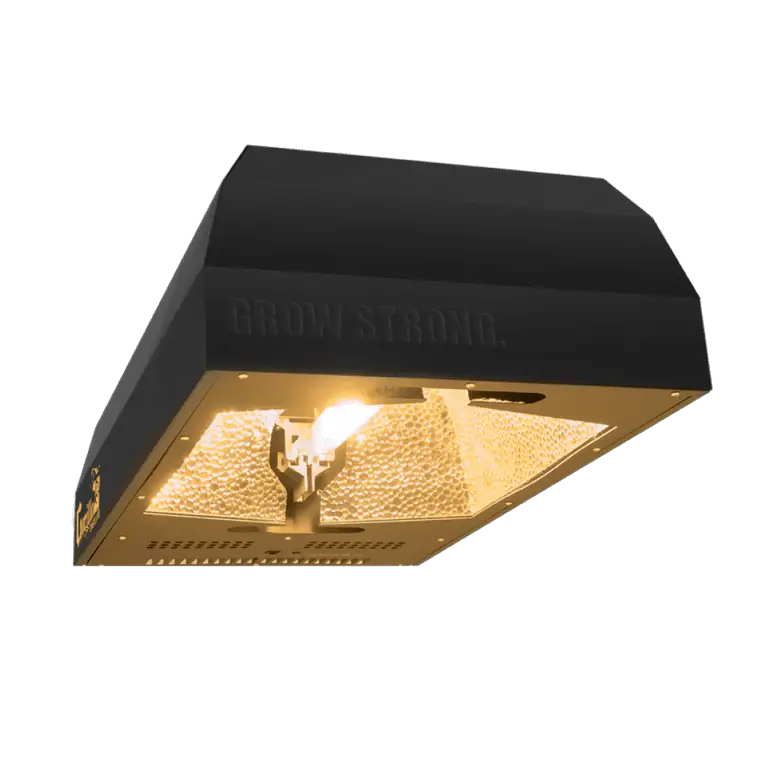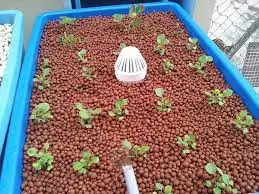The 5 Essential Indoor Hydroponic Tools You Need to Start Your Garden Today
Table of Contents
EC/TDS Meter: Measure the electrical conductivity (EC) and total dissolved solids (TDS) to monitor the nutrient concentration in your solution.
Hydroponic Tools, an EC/TDS meter is an essential tool for any hydroponic gardener. By measuring the electrical conductivity (EC) and total dissolved solids (TDS), this device helps monitor the nutrient concentration in your solution.
Electrical conductivity is a measure of how well an electrical current can pass through a substance, in this case, your nutrient solution. High conductivity indicates a higher nutrient concentration, while low conductivity suggests a lower concentration. TDS, on the other hand, represents the total amount of dissolved substances in the solution, including minerals, salts, and other nutrients. This measurement provides a comprehensive view of the overall nutrient content.

By regularly measuring the EC and TDS levels, you can ensure that your plants are receiving the optimal amount of nutrients they need for healthy growth. This information allows you to adjust your nutrient solution accordingly, maintaining a balanced and effective feeding program. With an EC/TDS meter, you can take the guesswork out of nutrient management and provide your plants with the precise nourishment they require.
| Importance of an EC/TDS Meter in Hydroponics | Description |
|---|---|
| Essential Tool for Hydroponic Gardeners | An EC/TDS meter is a crucial tool for hydroponic gardeners, providing valuable information for nutrient management. |
| Measures Electrical Conductivity (EC) and TDS | The meter measures both electrical conductivity (EC) and total dissolved solids (TDS) in the nutrient solution. |
| Monitors Nutrient Concentration | It helps gardeners monitor the concentration of nutrients in the solution, ensuring optimal levels for plant growth. |
| EC Indicates Nutrient Concentration | Electrical conductivity (EC) readings indicate the concentration level of nutrients in the hydroponic system. |
| TDS Represents Total Dissolved Solids | Total dissolved solids (TDS) readings represent the total amount of dissolved substances in the nutrient solution. |
| Regular Measurement for Optimal Nutrient Levels | Regular measurements with the EC/TDS meter ensure that nutrient levels are maintained at optimal levels for plants. |
| Adjustment for Balanced Feeding Program | Gardeners can adjust the nutrient solution based on meter readings, implementing a balanced feeding program for plants. |
| Eliminates Guesswork in Nutrient Management | The meter eliminates guesswork by providing accurate readings, enhancing precision in nutrient management strategies. |

Timers: Automate the lighting and watering cycles of your hydroponic system, ensuring consistency and optimal growth conditions.
Automating the lighting and watering cycles of your hydroponic system is essential for maintaining consistency and providing optimal growth conditions for your plants. The use of timers in your setup allows you to control the duration and frequency of light exposure, ensuring that your plants receive the right amount of light each day. This is particularly important for different stages of plant growth, as certain plants require specific light intensities and photoperiods for optimal development.
Moreover, timers also play a crucial role in automating the watering cycles of your hydroponic system. By setting up a regular watering schedule, you can ensure that your plants receive a consistent and adequate supply of water, promoting healthy root growth and preventing under- or over-watering. This level of precision and control provided by timers eliminates the need for manual intervention, allowing you to focus on other essential tasks in your garden while ensuring that your plants thrive.
• Timers allow you to control the duration and frequency of light exposure in your hydroponic system.
• Different stages of plant growth require specific light intensities and photoperiods, which can be easily achieved with timers.
• Automating the lighting cycles ensures that plants receive the right amount of light each day for optimal development.
• Timers also automate the watering cycles of your hydroponic system, providing consistent and adequate water supply to plants.
• Regular watering schedules promote healthy root growth and prevent under- or over-watering.
• The precision and control provided by timers eliminate the need for manual intervention, allowing you to focus on other tasks while ensuring plant health.

Air Circulation Fans: Improve airflow and prevent stagnant air, reducing the risk of pests and diseases.
Air circulation fans play a crucial role in creating a healthy growing environment for your hydroponic system. These fans improve airflow within the grow room, preventing stagnant air from accumulating. Stagnant air can create a breeding ground for pests and diseases, as it provides the perfect conditions for their growth and proliferation. With the use of air circulation fans, you can ensure a constant flow of fresh air, reducing the risk of infestations and promoting healthier plant growth.
By improving airflow, air circulation fans also help in maintaining consistent temperature and humidity levels within the grow room. This is particularly important in hydroponic systems where the temperature and humidity can directly impact plant health and productivity. Adequate air circulation prevents temperature and humidity imbalances, providing plants with the ideal conditions they need to thrive. With the right airflow, you can prevent hot spots or cold zones in your grow room, ensuring uniform growth across all your plants.
In addition to pest and disease control and temperature regulation, air circulation fans also promote stronger plant stems and healthier foliage. As the fans create gentle air movement, plants develop stronger stems to withstand the mild breeze. This increased stem strength not only improves overall plant structure but also enhances nutrient uptake and water absorption, leading to better nutrient utilization and overall plant health. Moreover, the gentle breeze generated by the fans helps dry out excess moisture on the leaves, reducing the risk of fungal diseases and molds.
In conclusion, air circulation fans are an essential component of any hydroponic setup. They provide numerous benefits, including improved airflow, reduced risk of pests and diseases, and enhanced plant growth. By investing in high-quality air circulation fans, you can create a thriving environment for your hydroponic plants and maximize their potential yield.
• Improved airflow prevents stagnant air from accumulating
• Reduces the risk of pests and diseases in the grow room
• Maintains consistent temperature and humidity levels
• Prevents hot spots or cold zones in the grow room
• Promotes stronger plant stems and healthier foliage
• Enhances nutrient uptake and water absorption
• Reduces the risk of fungal diseases and molds on leaves
• Creates a thriving environment for hydroponic plants
• Maximizes potential yield

Water Chiller/Heater: Regulate the temperature of your nutrient solution to ensure it remains within the ideal range for plant growth.
Regulating the temperature of your nutrient solution is crucial for the success of your hydroponic system and the optimal growth of your plants. A water chiller/heater is an essential tool that allows you to maintain the ideal temperature range for your plants.
The nutrient solution temperature plays a significant role in plant growth and overall health. If the temperature is too high, it can lead to a decrease in oxygen levels, which can be detrimental to the roots. On the other hand, if the temperature is too low, it can slow down nutrient uptake and slow down plant metabolism.
By using a water chiller/heater, you have complete control over the temperature of your nutrient solution. This means you can adjust and maintain the perfect temperature range for your specific plants, ensuring they receive the optimal conditions they need to thrive. Whether you need to cool down the solution during hot summer months or warm it up in colder temperatures, a water chiller/heater is a reliable solution to keep your nutrient solution at the ideal temperature.
| Benefits of a Water Chiller/Heater in Hydroponics | Description |
|---|---|
| Regulating Nutrient Solution Temperature | A water chiller/heater allows precise regulation of the nutrient solution temperature, ensuring it stays within the ideal range for plant growth. |
| Crucial Role in System Success | Maintaining the right temperature is crucial for hydroponic system success and optimal plant growth. |
| Preventing Oxygen Decrease in High Temperatures | In high temperatures, a too-warm nutrient solution can lead to decreased oxygen levels, harming root health. |
| Avoiding Nutrient Uptake Slowdown in Low Temperatures | Conversely, in low temperatures, a too-cold solution can slow down nutrient uptake and plant metabolism. |
| Complete Control Over Temperature | A water chiller/heater provides complete control over the nutrient solution temperature, allowing adjustment to the perfect range for specific plant needs. |
| Adaptability to Seasonal Changes | During hot summers, it can cool down the solution to prevent overheating, while in colder temperatures, it can warm up the solution for healthy plant growth. |
| Ensuring Optimal Conditions for Plants | Using a water chiller/heater ensures that plants receive optimal temperature conditions, promoting their overall health and thriving in the hydroponic system. |
Seeds or Seed
Seeds are the fundamental building blocks of any successful hydroponic garden. They hold the potential for growth and development, harboring within them the genetic information that determines the characteristics of the plants they will become. When selecting seeds for your hydroponic system, it is crucial to consider factors such as plant variety, germination rate, and disease resistance.
Plant variety plays a crucial role in determining the success of your hydroponic garden. Different plants have varying requirements when it comes to light, temperature, and nutrient levels. Therefore, it is important to choose seeds that are suited to your specific growing conditions. Whether you prefer leafy greens like lettuce or herbs like basil, selecting the right variety of seeds will not only ensure optimal growth but also result in a bountiful harvest.
In addition to variety, the germination rate of seeds is a key consideration. This refers to the percentage of seeds that successfully sprout and develop into healthy seedlings. High-quality seeds with a high germination rate will give you a head start in your hydroponic gardening journey, increasing the chances of success and reducing potential frustrations.
Lastly, disease resistance is a critical factor to consider when choosing seeds. Some plants are naturally more resistant to pests and diseases, which can save you time, effort, and resources in maintaining a healthy garden. By selecting disease-resistant seeds, you can minimize the risk of plant loss and ensure the longevity of your hydroponic system.
| Factors for Selecting Hydroponic Seeds | Description |
|---|---|
| Crucial Role of Plant Variety | Plant variety is crucial for hydroponic success, as different plants have varying requirements for light, temperature, and nutrients. Choosing the right variety ensures optimal growth. |
| Importance of Germination Rate | The germination rate is a vital consideration when selecting seeds. High-quality seeds with a high germination rate increase the chances of success in hydroponic gardening. |
| Advantages of Healthy Seedlings | Healthy seedlings with a high germination rate provide a head start in the hydroponic gardening journey, ensuring robust growth and a bountiful harvest. |
| Consideration of Disease Resistance | Disease resistance is essential when choosing seeds. Some plants are naturally more resistant to pests and diseases, minimizing the risk of plant loss. |
| Investment in High-Quality Seeds | Investing in high-quality seeds from reliable sources yields better results. Cheaper or lower-quality seeds may not perform as well or produce desired outcomes in hydroponics. |
| Research, Reviews, and Consultation | Research, read reviews, and consult with fellow hydroponic gardeners for informed decisions on seed selection. |
How do I know what nutrient concentration is ideal for my hydroponic system?
You can measure the electrical conductivity (EC) and total dissolved solids (TDS) using an EC/TDS meter to monitor the nutrient concentration in your solution. This will help you determine the optimal levels for your plants.
Can I manually control the lighting and watering cycles of my hydroponic system?
Yes, you can manually control the cycles, but using timers is recommended for automation. Timers ensure consistency and provide optimal growth conditions by regulating the duration and frequency of lighting and watering.
Why is air circulation important in a hydroponic system?
Air circulation fans play a crucial role in improving airflow and preventing stagnant air. This helps to reduce the risk of pests and diseases by creating an environment that is less favorable for them to thrive.
What are the benefits of regulating the temperature of the nutrient solution?
Regulating the temperature of the nutrient solution using a water chiller/heater ensures that it remains within the ideal range for plant growth. This helps to optimize nutrient absorption and metabolic processes in the plants, leading to healthier and more productive growth.
Can I use regular seeds for hydroponic gardening?
Yes, you can use regular seeds for hydroponic gardening. However, it is recommended to use seeds specifically bred for hydroponic systems, as they are often more adapted to the unique growth conditions of hydroponics. These seeds are often referred to as “hydroponic seeds” or “seeds for hydroponic systems.”

Beck Wakeford is a dedicated writer at SouthElMonteHydroponics, with a fervent enthusiasm for agriculture and technological innovation. Armed with a degree in Agricultural Engineering from a leading university, Beck specializes in hydroponic systems design, automation, and optimization. Their passion for merging traditional farming with cutting-edge technology drives them to explore novel solutions for sustainable food production. Beck’s expertise and keen interest in the intersection of engineering and agriculture make them a valuable asset in the quest for efficient and eco-friendly farming practices. Through their writing, Beck aims to inspire others to embrace the potential of hydroponics in shaping a more sustainable future.





